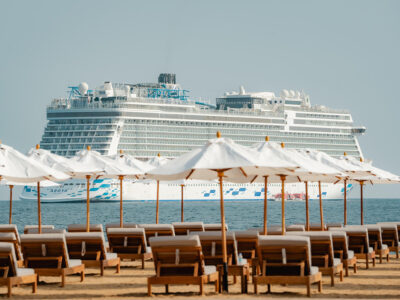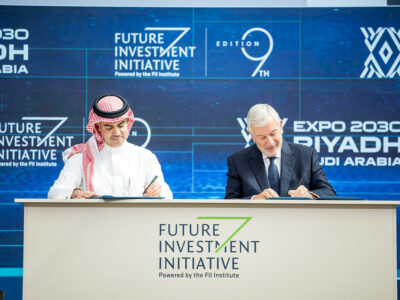Health club managers and governments alike need to invest time in better educating consumers about the benefits of a healthy lifestyle, asserts Technogym founder and wellness legend Nerio Alessandri in this exclusive interview with Leisure Manager.
You set Technogym up 20 years ago; did you have any idea then that it would grow to be an international wellness company?
I had the dream when I started. I had a very strong dream to become the number one in the world. The vision was to create a wellness company to improve people’s quality of life. And this corporate social responsibility (CSR) is what motivates the entire team — it is the first motivation of the team because the social commitment creates their passion and enthusiasm.
Through our innovative approach — the growth rate of Technogym really hinges upon our innovation — we created the [most] unique wellness company in the world.
So your focus has always been on wellness and CSR?
Exactly — it’s all about education. We started not by selling the product, but by proposing it and promoting the wellness lifestyle; it is the key to success.
In your career, how have you seen the health club industry develop? How have you promoted the transition from fitness to wellness?
Twenty years ago, everybody was doing body building. But my vision was to develop products not for the fitness fanatic, but also for sports training, for men and women, for everybody. Wellness is for everybody, fitness is for the niche.
Today, everybody knows the wellness benefits, in terms of prevention, in terms of quality of life and the fact that exercise definitely is medicine.
Exercise therapy is the new key word. It is the solution to combating diabetes, cardiovascular problems and to preventing the risk of obesity. Not only is it the key word, it is also about an emotional approach. Wellness is about feeling good; fitness is looking good. Wellness includes not only training, but good nutrition, a positive approach and a lifestyle focus in an ambient environment. In fact, the wellness centre/lifestyle centre is different because of its environment and atmosphere. The fitness centre is only about training — it is not enough. People need environment, atmosphere and an emotional approach — it is about pleasure not beauty.
Which markets is the wellness concept most advanced in?
The wellness concept is global, but the perception is local. For example, in the US the main reason for wellness is to combat obesity; in China it is to reach success (more energy equals more business); and in Italy and Europe, wellness is about socialising, lifestyle, design, aesthetics.
In the UAE, it is a good combination because it is a cosmopolitan area. I went to Abu Dhabi and I spoke to a lot of people in this region and in this area there is a very huge problem. The region has the highest number of diabetes Type II sufferers in the world — 22% of the population suffers diabetes. In Italy, it’s 3% or 4%, in the US it’s 5%, but in the Middle East it’s 22%.
So, what’s the solution?
The World Health Organisation (WHO) promotes lifestyle change through regular exercise therapy and nutrition. The lifestyle approach is better than a pharmaceutical one. Diabetes Type II must be approached in the natural way because other treatment creates a negative collateral effect.
The solution is to educate people in school — the key issue is education.
How can Technogym help educate?
I founded The Wellness Foundation to promote the wellness culture in schools and in the corporate sector. Corporate wellness is starting now, for example, with Aldar and Mubadala in Abu Dhabi we created a corporate programme.
We have the Technogym Emirates [training centre] in Dubai and we have The Wellness Institute programme; we developed a lot of training programmes in terms of product training, programming and rehabilitation. The rehabilitation sector is important to us.
What other market sectors are important to Technogym?
For us, the segmentation in the market is important. There are three different focuses: one is club — public and commercial clubs; second is home and hospitality — resort, hotel, condominium; and the third is focused on health — rehabilitation, biomedical. Health is the new frontier; that’s where the opportunities lie.
What do think of gyms you have seen in the UAE?
The health club at One&Only Royal Mirage is at a very high level. They have a very professional personal trainer, they have a master in kinesis and a very high standard spa. This is a real example of high-standard service.
What would be your advice to leisure managers in the Middle East?
I would urge them to focus on quality in terms of personal training and support, as well as education and consulting. Personal trainers should be seen as wellness consultants and coaches. They are the touch point for the customers.
And design is also very important – it needs to attract people in terms of atmosphere and emotion.
Why is design so vitally important to Technogym?
Technogym’s DNA is that it is an Italian company — ‘made in Italy’. We work with Ferrari, we work with important designers like Antonio Citterio. Technogym products are a piece of art and for this reason we won the ‘red dot’ design award this year [for three products — Jog Excite, Flexability and Purestrength.
I am the advisor [to the design team]. We have a very important research centre with 150 engineers and a lot of designers.
Where does the inspiration for your ideas come from?
I am very curious and I like to touch and investigate the environment around me. I remember the details. I remember something if I like the colour, the shape, the harmony, dimensions, texture — I started like this when I was very young.
Where do you see Technogym in the next 20 years?
We would like to become a consultant for different governments. We would like to be part of the social project to help humanity because after the green economy today will come the wellness economy. Why? It’s simple, because the person is the most important thing we have; the focus is not on the environment, the focus is on the person. We need to move the government approach to be more human centric — because human quality of life is the priority. It’s the best investment.
People are getting older, obesity is growing dramatically and the environmental risks in terms of stress, traffic, pollution etc are growing. We need to prepare people to combat the bad environment and we need to invest in health, because health is wealth.








